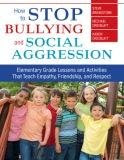Ignore the Bully
Teach your child to ignore the bully. Your child should not make faces, cry, sigh, or make any gesture signaling distress. Often, when bullies don't get a reaction, they stop.
Walk Away
Your child can choose to walk away in a confident manner - head up, back straight and with a normal walking pace. Your child needs to be aware of being followed and walk to a safer place, usually near adults. If the bully says mean things, continue to ignore and walk away.
Tell the Bully to "Stop"
Keeping a distance of 1½ to 2 arm lengths, have your child say, "Stop!" or, "Cut it out!" Teach your child to:
Make eye contact.
Express confident body language; head up, back straight, arms down in front or on the side of the body and feet at shoulder width. No fidgeting!
Speak clearly - a steady tone, not too loud, too soft, whiny or sarcastic.
Make short statements such as, "Stop!" or "Cut it out!"
Then turn and walk away.
Go to a Trusted Adult
When other strategies fail, or there is immediate danger, tell your child to go to a trusted adult. This is not tattling; this is requesting assistance with a serious problem.
©2008 http://rs6.net/tn.jsp?t=4cd8vqcab.0.0.jt48c7bab.0&ts=S0361&p=http%3A%2F%2Fwww.balanceeducationalservices.com%2F&id=preview Permission is granted to use this article.


